Eric Clare Midwinter OBE (born 11 February 1932) is an English author, broadcaster and academic. He is a consumer advocate, a social policy analyst, a historian of the sport of cricket and an expert on British comedy.
Eric Clare Midwinter OBE (born 11 February 1932) is an English author, broadcaster and academic. He is a consumer advocate, a social policy analyst, a historian of the sport of cricket and an expert on British comedy.
Eric Midwinter was born in Sale, Lancashire, in 1932, and was educated at a local grammar school and St Catharine's College, Cambridge, where he read history. [1] Between 1968 and 1971 he led the team for action research in the Liverpool Education Priority Area. Between 1972 and 1975, as Principal of the Liverpool Teachers’ Centre, he established an organisational structure capable of delivering continuing professional development to all teachers in Liverpool. He was Chairman of the London Regional Passengers Committee, the government-appointed watchdog for public transport, from 1984 to 1996. He was Director of the Centre for Policy on Ageing from 1980 to 1991, when the centre was developing its role as a policy institute, and is now its chairman. He was Visiting Professor of Education at the University of Exeter from 1992 to 2001.
A social historian and social policy analyst, he is a co-founder of the University of the Third Age [2] and has been consultant to the Millennium Debate of the Age project and to the International Longevity Centre UK. He has been Chairman of the Health and Social Welfare Board of the Open University, which awarded to him an Honorary Doctorate, and he was a member of the Carnegie Inquiry into the Third Age Committee. He was also a member of the Advisory Committee on Telecommunications for Disabled and Elderly People and, for five years, a member of the Prince of Wales Advisory Group on Disability. He completed a European Commission study, under the auspices of Age Concern England, into the feasibility of a Senior Euro-pass. Until 2008, he was Chairman of the Community Education Development Centre, Coventry.
A cricket historian, he was for seven years President of the Association of Cricket Statisticians and Historians, and is a biographer of W.G. Grace. Midwinter won The Cricket Society/MCC Book of the Year award in 2005 for Red Shirts and Roses, [3] and the Wisden Book of the Year award in 2011 for The Cricketer's Progress: Meadowland to Mumbai. [4] He was for several years editor of the MCC Annual, and he has prepared many notices of the lives of cricketers and comedians for the old and new Dictionary of National Biography . He is also an expert on British comedy, through, for instance, his books Make 'em Laugh: Famous Comedians and their Worlds and The People's Jesters; British Comedians in the 20th Century.
He and his wife Margaret live in Harpenden, Hertfordshire. [5]
The 2015 book Variety is the Spice of Life: The Worlds of Eric Midwinter is an appreciation of his life and work. [1]
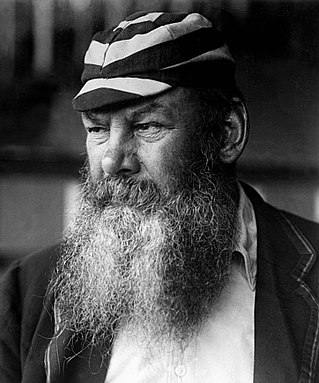
William Gilbert Grace was an English amateur cricketer who was important in the development of the sport and is widely considered one of its greatest players. He was nominally amateur as a cricketer, but he is said to have made more money from his cricketing activities than any professional cricketer. He was an extremely competitive player and, although he was one of the most famous men in England, he was also one of the most controversial on account of his gamesmanship and moneymaking.

Aigburth is a suburb of Liverpool, England. Located to the south of the city, it is bordered by Toxteth and Dingle to the north, Mossley Hill to the east, and Grassendale to the south, with the River Mersey forming its western boundary.
Michael Dunlop Young, Baron Young of Dartington,, was a British sociologist, social activist and politician. He was an urbanist of different dimensions such as academic researcher, polemicist and institution-builder.
The University of the Third Age (U3A) is an international movement whose aims are the education and stimulation of mainly retired members of the community — those in their third 'age' of life.

Colonel George Robert Canning Harris, 4th Baron Harris,, generally known as Lord Harris, was a British colonial administrator and Governor of Bombay, best known for developing cricket administration via Marylebone Cricket Club (MCC).
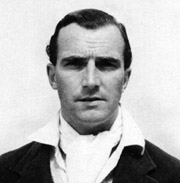
Kenneth Cranston was an English amateur cricketer, who played first-class cricket for Lancashire and eight times for England, in 1947 and 1948. He retired from playing cricket to concentrate on his career as a dentist.

David Stuart Sheppard, Baron Sheppard of Liverpool was a Church of England bishop who played cricket for Sussex and England in his youth, before serving as Bishop of Liverpool from 1975 to 1997. Sheppard remains the only ordained minister to have played Test cricket, though others such as Tom Killick were ordained after playing Tests.
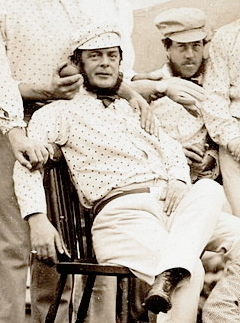
John Wisden was an English cricketer who played 187 first-class cricket matches for three English county cricket teams, Kent, Middlesex and Sussex. He is now best known for launching the eponymous Wisden Cricketers' Almanack in 1864, the year after he retired from first-class cricket.
The Cricket Society is a charitable organisation founded in 1945 as the Society of Cricket Statisticians at Great Scotland Yard, London. It has grown steadily to be the largest body of its kind in the cricket world. The Cricket Society now has approaching 2000 members in the United Kingdom and the cricket playing countries of the world. Its current President is John Barclay.

Reginald Herbert Spooner was a cricketer who played for Lancashire and England. He also played Rugby Union for England.
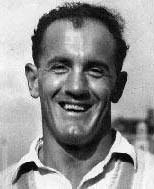
Dennis Raoul Whitehall Silk was an English first-class cricketer and a public school headmaster. He was a close friend of the poet Siegfried Sassoon, of whom he spoke and wrote extensively. In the 1990s he chaired the Test and County Cricket Board.
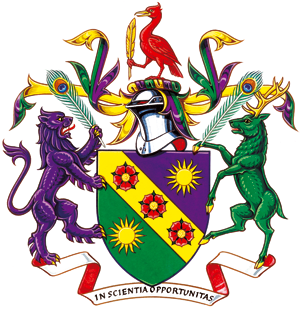
Edge Hill University is a campus-based public university in Ormskirk, Lancashire, England. The university, which originally opened in 1885 as Edge Hill College, was the first non-denominational teacher training college for women in England, before admitting its first male students in 1959. In 2005, Edge Hill was granted Taught Degree Awarding Powers by the Privy Council and became Edge Hill University on 18 May 2006.

From May to September in 1878, an Australian cricket team made the inaugural first-class tour of England by a representative overseas side. In October, the Australians played additional matches in the US and Canada on their return journey. The tour followed one made by an England team to Australia in 1876–77, during which the first matches retrospectively given Test match status were played. None of the 1878 matches had international status, nevertheless the tour proved to be such an outstanding financial and sporting success that the future of international cricket was assured.

Altrincham Grammar School for Boys is a boys' grammar school in Altrincham, Greater Manchester, England.
Gerald Howat, born Gerald Malcolm David Howat, was a British writer on cricket, a historian and a schoolmaster.
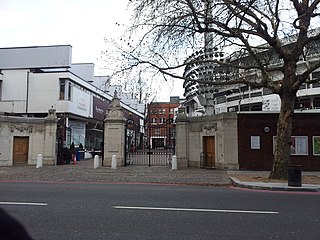
The Grace Gates, officially the W. G. Grace Memorial Gates, are two pairs of gates on St John's Wood Road at Lord's Cricket Ground in London, England. They were erected in 1923 and the gates with their flanking walls and piers became a Grade II listed building in 1996.
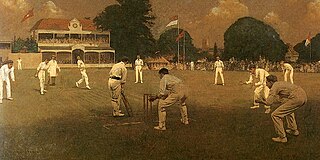
Kent vs Lancashire at Canterbury is an oil on canvas painting by Albert Chevallier Tayler completed in 1907. It was commissioned by the Kent County Cricket Club at the suggestion of chairman Lord Harris to celebrate their first County Championship title win. Tayler painted the picture after taking individual sittings with each of the Kent players. With the exception of short-term loans, the painting remained at the St Lawrence Ground until 1999, at which time it was moved to the Lord's Pavilion as Kent could no longer afford the insurance. In 2006, Kent sold the painting to a charity foundation at an auction. The piece is currently on display at Lord's Cricket Ground in London.
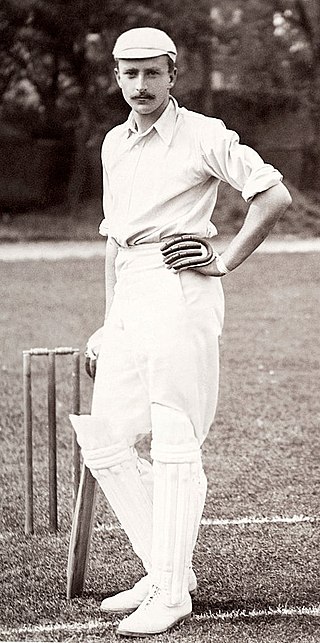
Eric William Mann was an English cricketer and philatelist who signed the Roll of Distinguished Philatelists in 1947. He was President of the Royal Philatelic Society London between 1946 and 1949. Mann was an expert on the stamps of Natal and Tasmania.
The match between Marylebone Cricket Club (MCC) and the First Australians, at Lord's on Monday, 27 May 1878, is the lowest scoring completed first-class match on record. It was a media sensation which radically altered English perception of Australian cricketers and was hailed in years to come as "(the match which) marked the commencement of the modern era of cricket".